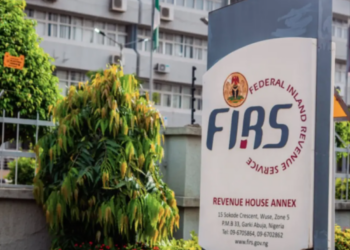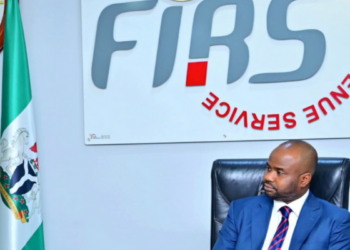The new Chairman of the Federal Inland Revenue Tunde Fowler has been talking tough since his new appointment. This should get companies really worried as this was the same guy who grew Lagos State taxes from N3.6billion monthly in 2006 to about N20billion every month by the time he was leaving office in 2015. He has delivered before so one shouldn’t be surprised when he says he will do it again.
In a recent press conference and meetings with stakeholders, he unveiled a 10 point focal area for his administration:
- Full Compliance from the organised private sector: It is expected that there will be full compliance on tax filing and remittance by the end of 2015. He noted that some multinational companies and banks are not fully compliant. He also cautioned other businesses that operate shady and manifold records to henceforth desist from such acts. He stated that businesses must operate honestly and legally, keeping proper and accurate records.
- Restructuring of the FIRS: He mentioned that the Revenue will restructure its service to focus on different sectors of the economy with particular emphasis on the non-oil sector in order to diversify the country’s heavy reliance on oil revenue.
-
Collaboration with the State Boards of Internal Revenue: Greater information sharing and exchange of information will take place to achieve the goals of increased revenue generation from taxes across board. It was proposed that FIRS and states tax authorities will explore the possibility of joint tax audits of businesses
-
Advance corporate tax payment on interim dividend: In line with the provisions of the Companies Income Tax Act, the FIRS will henceforth demand any company paying interim dividend to pay 30% of the gross distribution to the FIRS as advance corporate income tax.
-
Tax audits and use of consultants: FIRS plans to use tax consultants, subject to certain restrictions such as conflict of interest, in carrying out tax audits to complement existing internal capacity of the FIRS. Efforts will be made to close outstanding audits before the end of 2015 while new audits will commence by March 2016 for open years.
-
Technology in tax administration: FIRS and JTB will look into possible ways of enhancing tax administration through technology. This will simplify tax compliance, reduce cost of collection and help expand the tax base.
-
Tax amnesty: No decision has been made yet on whether a tax amnesty will be declared for non-compliant taxpayers. However, any previously unregistered and new taxpayer that voluntarily comes forward will be favourably considered.
-
Review of FIRS Circulars: FIRS will consider a review of its existing tax circulars if inputs from stakeholders suggest a need to do so especially those that are outdated.
-
Stakeholder engagement: There will be regular interactions with taxpayers, tax consultants, professional bodies, organised private sector and law-makers to explore areas for improvement in the tax system.
-
New taxes and increase in tax rates: The Immediate focus of the FIRS will be on improving compliance and expanding the tax base rather than introducing new taxes or increasing the rates of existing taxes.
Tax Consultants, PWC took a critical look at these plans and came up with possible implications and scenarios for most companies. Here is their view
Increased scrutiny and audits: The FIRS generated NGN4.69 trillion in taxes in fiscal year 2014. A report showed that the 2014 revenue was about NGN106 billion less than that of 2013, which stood at NGN4.80 trillion. In 2015, between January to June the FIRS has been able to collect NGN1.97 trillion compared to its target of NGN2.28 trillion. The new Chairman has expressed confidence and resolve in the ability of the FIRS to triple its current collection figure by the end of 2015. This is likely to involve more aggressive revenue drive, intense audits and investigations.
Pursuit of tax evaders: We expect that the FIRS to go after companies that have been evading taxes. Currently it is estimated that about 75% of companies operating in Nigeria are not registered with the FIRS while about 65% of those that are registered are not up to date with their tax filing and payments. This makes the effective rate of compliance to be less than 10%.

![[GET READY] Tunde Fowler Will Focus on These 10 Areas to Drive Tax Revenue](https://nairametrics.com/wp-content/uploads/2015/09/Batman.jpg)

















